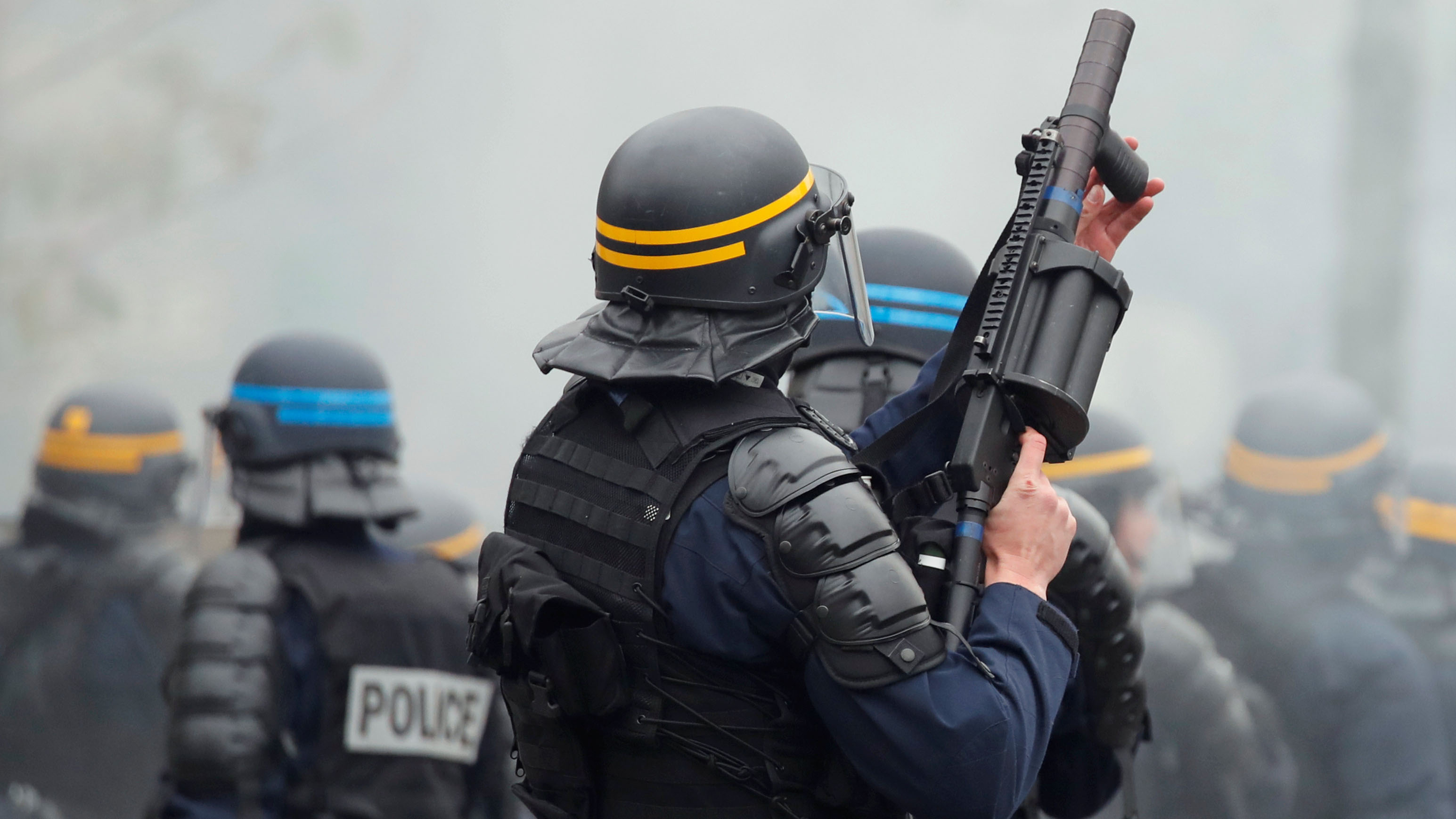More than 140 people have been arrested across Paris as small but heated protests erupted on Saturday during the first anniversary of the anti-government "Yellow Vest" demonstrations.
While Saturday's protests brought about the worst violence in months, turnouts for these demonstrations were noticeably low.
01:28

Protesters, many dressed in black with their faces hidden, went on a vandalism spree in the Place d'Italie, turning over cars, setting bins and bikes on fire, and defacing an HSBC bank branch. Some hurled cobblestones at riot police, who fired tear gas and water cannon to push them back.
In light of the violence, authorities withdrew permission for a planned demonstration, warning of a "firm" response against any troublemakers. Earlier, officers had to intervene to stop large groups of protesters from occupying the Paris ring road.
On the famed Champs Elysees – the symbolic birthplace of these mass protests – police kept a close watch, desperate to avoid a repeat of the violence in 2018, which saw running battles on one of the world's most famous avenues.
Heavily armed officers stopped, searched and fined dozens of suspected demonstrators, seizing gas masks, goggles, and the yellow hi-vis vests which gave name to the movement.

Turnouts at the demonstrations were noticeably low. (Credit: Reuters)
Turnouts at the demonstrations were noticeably low. (Credit: Reuters)
"I was just walking on the Champs Elysees to join the protest, and they stopped us, they stopped us because we looked a bit different from the tourists I suppose, and I had a protection mask for tear gas, so they took that and fined me 135 euros [$149]," said one protester. "The police operation is ridiculous, they've blocked an immense area and it's repressive, I'm just in the street with a mask to protect me and they fine me."
Another claimed police seized his prescription glasses, although admitted he was there for the anniversary.
"They fined me 135 euros, for having protective glasses, and now they're banning people from the area. It's not normal. We're French and we have the right to walk around in our country. We just wanted to protest, nothing more complicated than that."
The uprising, sparked by anger over a fuel tax hike and high cost of living, has lost considerable momentum since November 2018, when more than 280,000 people took to the streets. Much of that is attributed to a lack of organization and unclear demands, particularly after France's president, Emmanuel Macron, scrapped the proposed tax increase and rolled out a multi-billion-dollar reform package.